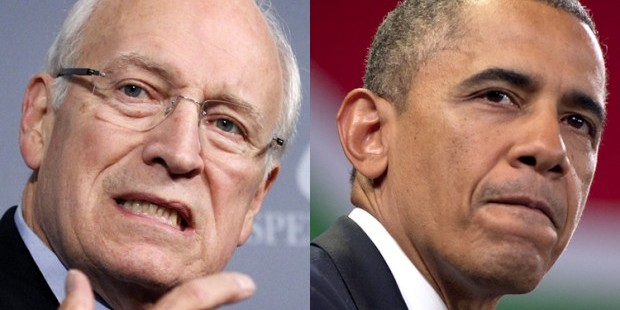
America’s imperial decline: Must Dick Cheney always be president?
Barack Obama talks like a constitutional lawyer, but acts like Dick Cheney. Snowden shows it’s the same old America
Edward Snowden has been on the lam for nearly three weeks now. The 30-year-old computer whiz has gone from Hawaii to Hong Kong to Moscow since revealing official eavesdropping and hacking practices that Americans, along with everyone else, have an urgent right to know about. The denouement may come any time now. I wish Snowden luck in finding a new, humane home.
In the meantime, let us not miss something else that has come harshly to light in the course of Snowden’s flight from U.S. authorities. Without even meaning to, America’s latest whistle-blower has made an important point about the nation’s place in the 21st century world. And no, it is not a good place.
Have you noted the extent to which Washington has failed to influence the governments that have harbored the National Security Agency’s former contractor? Have you heard or read the hostile outbursts greeting news that the NSA has been bugging computer networks and telephone circuits all over Asia and Europe? Most recently, have you detected the Obama administration’s disgraceful arm-twisting as it tries to dissuade potential providers of asylum?
These responses put another question on the table, and do not think for a moment that the White House is not asking it. There is the validity or otherwise of what Snowden did — as a matter of law, civil disobedience, conscience, human rights, ethics and so on. Now there is the question of how the U.S. will respond to the reality of its waning global influence and whether Obama has repaired any of the widespread alienation accrued during the eight years his predecessor spent in the White House.
“America is alone in the world,” an Italian journalist named Luigi Barzini observed just after World War II. Barzini wrote out of admiration — praise for the victor. But now we stand on the darker side of the moon. Americans are alone less because of their power than because they are out of step in a world — the post–Cold War world — that they fail to understand.
Things sometimes come across by the oddest means, but this is part of what Edward Snowden’s so-far-successful escape from injustice (as I see it) unwittingly demonstrates. So far in this unlikely tale the U.S. has turned out to be the clumsiest player on the stage.
At this writing, Snowden remains sequestered in the transit lounge of Moscow’s international airport. One by one, the 21 nations to which he has applied for asylum are turning him down. The biggest surprise is Ecuador, whose social democratic president, Rafael Correa, began by speaking highly of Snowden’s commitment to universal rights. When a U.S. congressman suggested that Ecuador’s trade privileges may be denied if it gave Snowden safe harbor, Correa repudiated those arrangements without hesitation.

